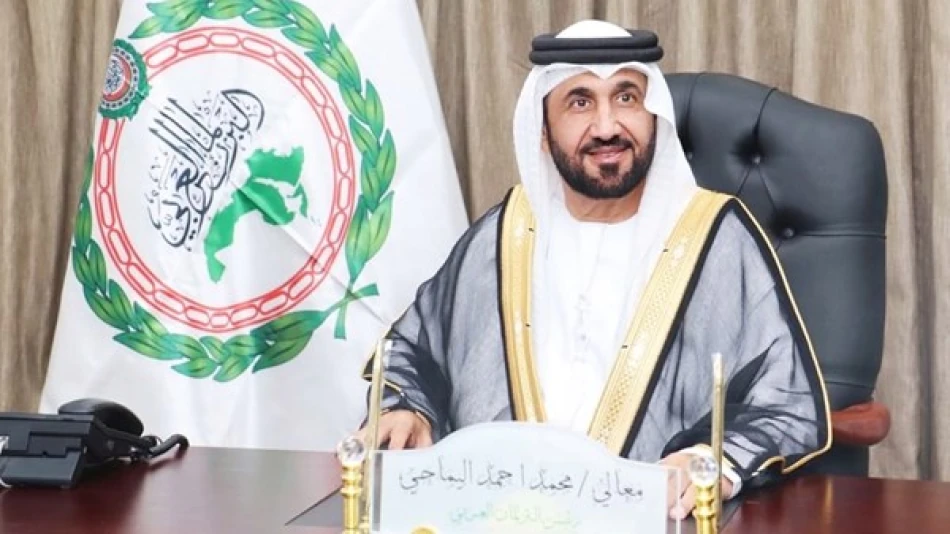
Arab Parliament Condemns Escalating Israeli Aggression in the West Bank
Arab Parliament Condemns West Bank Military Operations as Regional Tensions Escalate
The Arab Parliament has issued a sharp condemnation of Israeli military operations in major West Bank cities, including Ramallah, al-Bireh, and Hebron, describing the actions as part of a broader pattern of escalation that threatens regional stability. The statement comes as violence in the occupied territories intensifies alongside the ongoing conflict in Gaza, raising concerns about a wider deterioration of security conditions.
Military Operations Expand Beyond Gaza
According to the Arab Parliament's statement, Israeli forces have conducted operations in several Palestinian urban centers, while settler activities in Palestinian villages and towns have increased under military protection. The parliamentary body, led by President Mohammed bin Ahmed al-Yamahi, characterized these developments as an extension of policies already being implemented in Gaza.
The timing of these operations suggests a coordinated approach that extends military pressure beyond the Gaza Strip to the West Bank, where approximately 2.8 million Palestinians live under Israeli military administration established after the 1967 Six-Day War.
International Law and Diplomatic Response
Legal Framework Under Pressure
The Arab Parliament's statement emphasizes what it views as violations of international law and humanitarian conventions. This reflects a broader diplomatic strategy employed by Arab states to frame the conflict within established legal frameworks, particularly the Fourth Geneva Convention governing occupied territories.
The reference to "ethnic cleansing" in the statement aligns with terminology increasingly used by international human rights organizations, though such characterizations remain highly contested in international forums.
Call for International Intervention
The parliamentary body's appeal for international protection mechanisms echoes similar calls made during previous escalation cycles. However, the effectiveness of such appeals has historically been limited by Security Council dynamics, where permanent members hold veto power over enforcement measures.
Regional Implications and Strategic Context
The Arab Parliament's statement reflects broader regional concerns about conflict expansion. With ongoing normalization processes between Israel and several Arab states, including the Abraham Accords signatories, the current escalation presents diplomatic challenges for governments balancing bilateral relations with domestic public opinion.
The condemnation also serves as a political signal to both Israeli and international audiences that Arab institutional support for Palestinian statehood remains firm, despite evolving bilateral relationships in the region.
Historical Patterns and Current Dynamics
West Bank tensions have historically fluctuated in correlation with Gaza conflicts, often intensifying during periods of broader regional instability. The current situation follows established patterns where military operations in one territory tend to trigger responses and counter-responses in others.
The Arab Parliament, established in 2001 as the legislative arm of the Arab League, has consistently maintained positions supporting Palestinian statehood with East Jerusalem as its capital, reflecting the consensus position among Arab League member states despite varying degrees of engagement with Israel.
For regional observers, the statement represents continuity in Arab institutional positions while highlighting the ongoing challenges facing diplomatic resolution efforts in an increasingly complex Middle Eastern security environment.
Most Viewed News

 Layla Al Mansoori
Layla Al Mansoori






